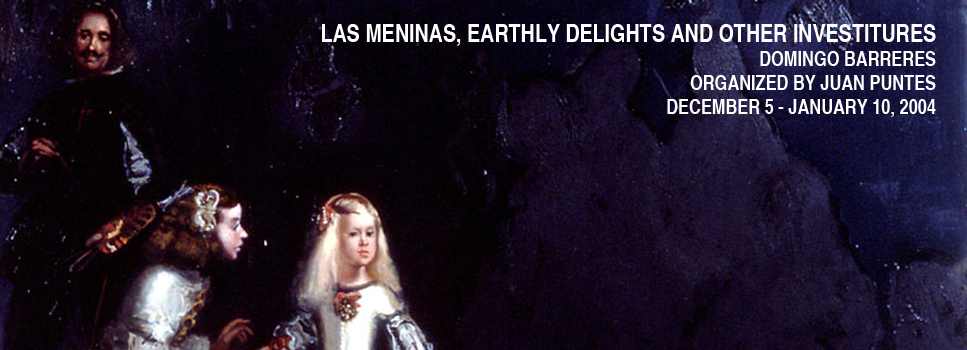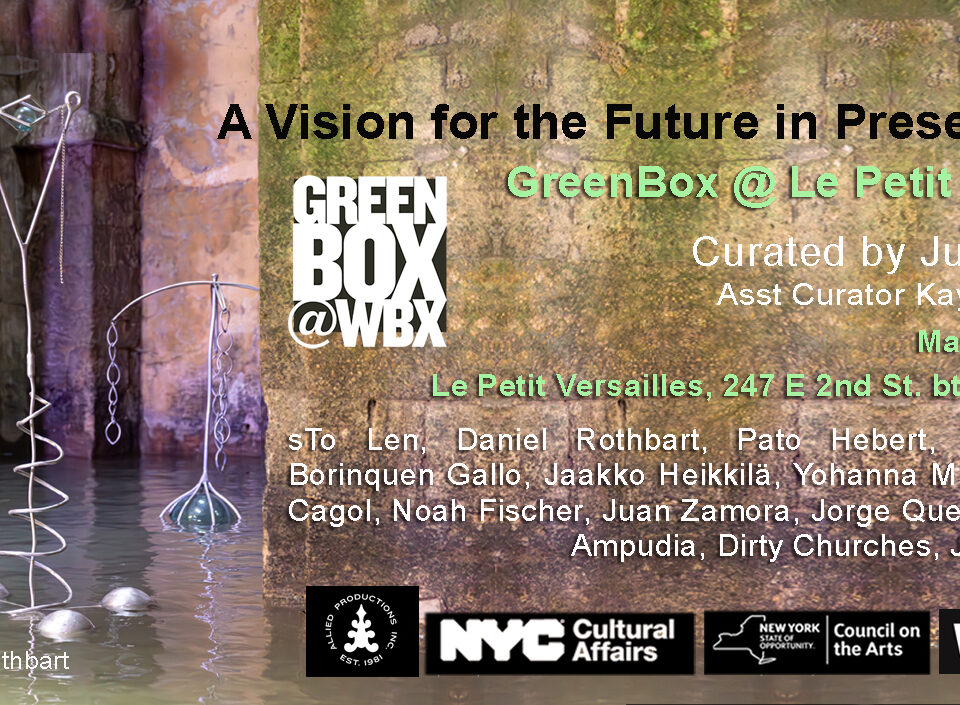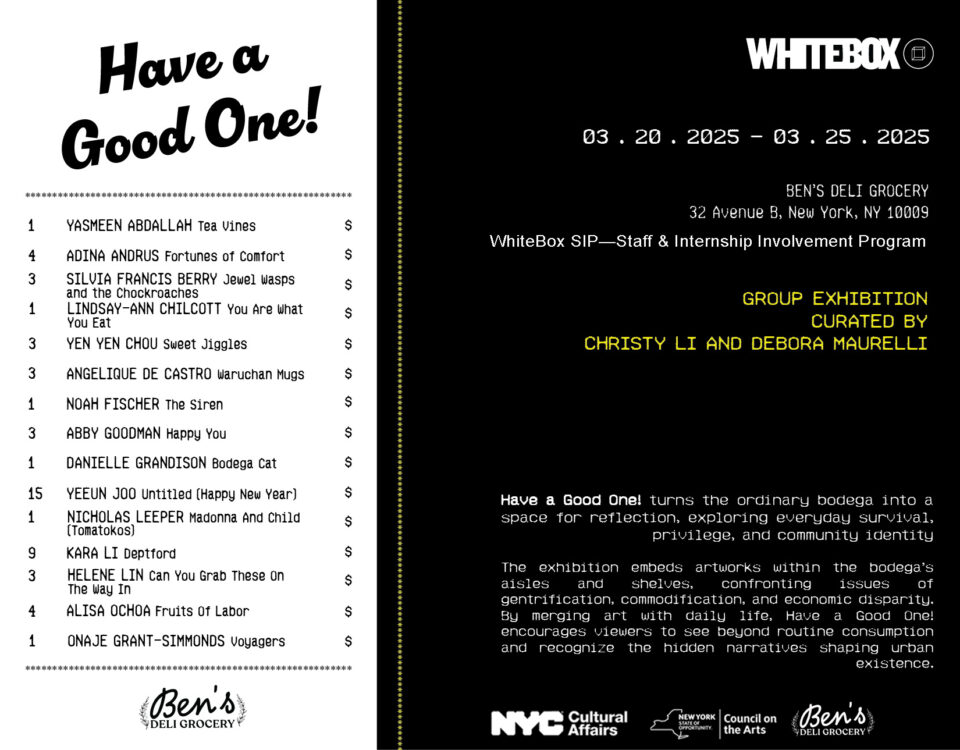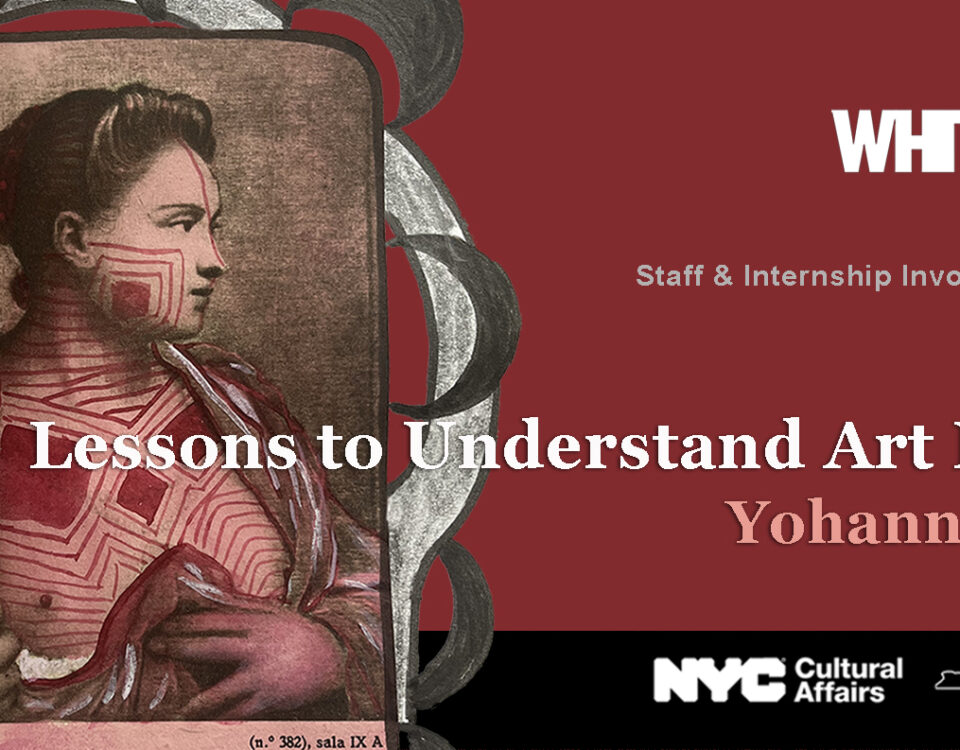TIM ROLLINS + K.O.S: WAR OF THE WORLDS
November 1, 2003Dennis Oppenheim Armatures for Projection: The Early Factory Projects
January 1, 2004LAS MENINAS, EARTHLY DELIGHTS AND OTHER INVESTITURES DOMINGO BARRERES ORGANIZED BY JUAN PUNTES DECEMBER 5, 2003 – JANUARY 10, 2004
White Box is pleased to present the work of Domingo Barreres, a Spanish-born Boston painter. The series of paintings are inspired by the 1656 Velazquez Las Meninas, Hieronymous Bosch’s The Garden of Earthly Delights combined with a rich layering of other more personal and politically charged concerns and imagery. Barreres’ Las Meninas series explore themes the artist has described as “obsessive ambition, beauty as mask for hidden agendas, or how anachronistic notions of identity may jeopardize such human traits as curiosity, imagination, carnal appetite, and love through sexual expression—-even rationality itself’.
In a style that brings to mind seventeenth century virtuoso Old Masters, placed in the context of today’s conservative backlash that equates progressive and avant -garde art with depravity, Domingo Barreres positions gay iconography deadcenter in the current discourses on painting and politics. His striking subject matter is charged by the artist’s passionate, first-hand experience of Catholicism and wanting to be a priest when he was growing up in Spain. His early fascination and love of the Catholic Church is today also mediated by the artistic, religious and cultural history on both sides of the Atlantic ocean. In particular, the recent sexual controversy within the Catholic Church in the US and Boston that is worked throughout the work with sections English and Spanish texts of poetry by Garia Lorca and Wallace Stevens.
The paintings are executed in a rich combination of materials ranging from traditional methods and including tar and plaster, watercolor and shellac, transforming the paintings into thick, rich, dark, glossy canvases that are interwoven with gilded linguistic dialogues common today in the creation of a contemporary conceptual space.
To quote Barreres: “The technical virtuosity of the seventeenth century parallels the new trust in rationality, a way of thinking recently divorced from myth and religion, but whose misuse, and subsequent illusion of superiority by the European elite, would cloud the future even to our present day”.




